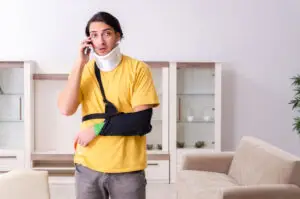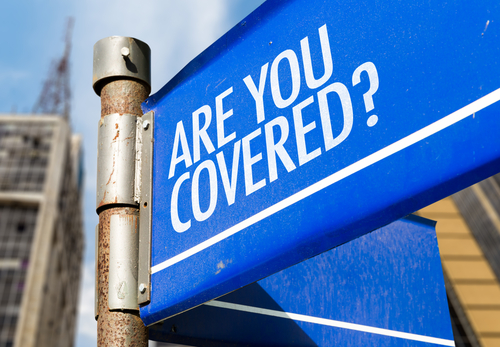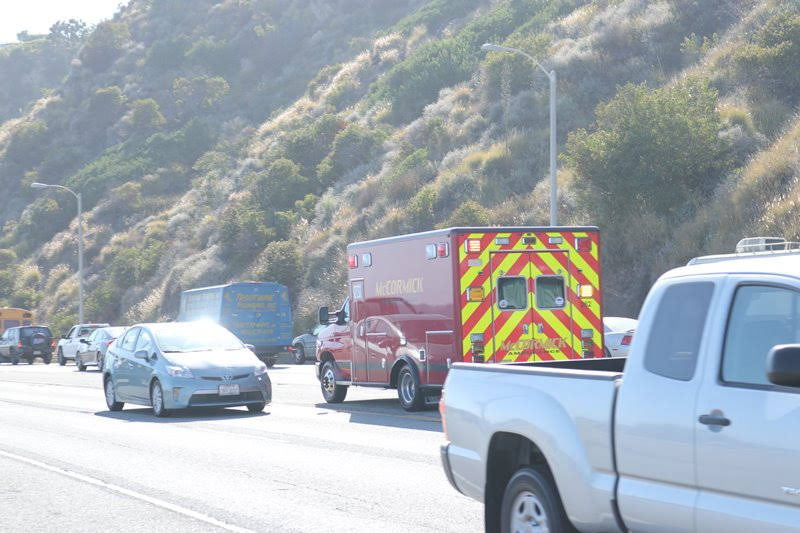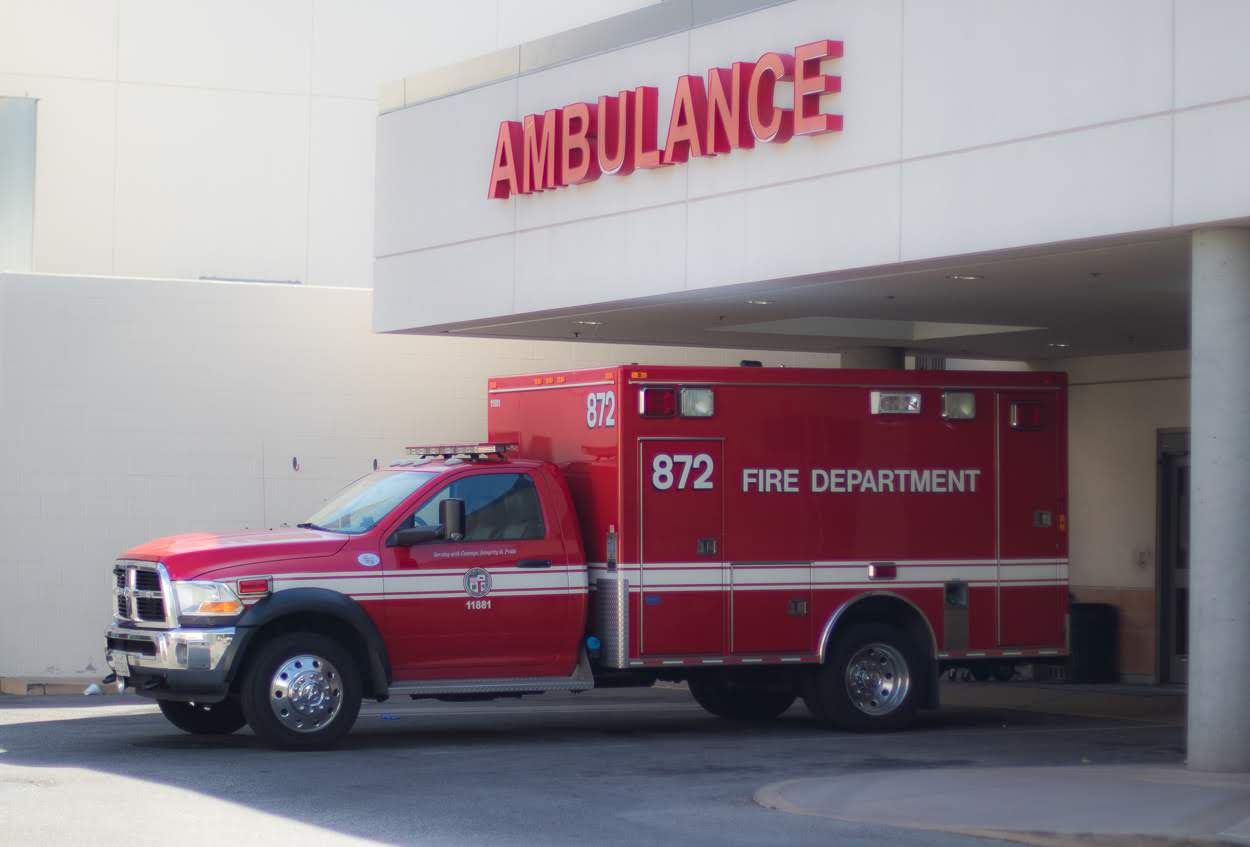
Philadelphia Slip and Fall Accident Lawyers With Decades of Experience Here To Help You
Have you been injured in a slip-and-fall accident? Are you worried about whether you will be able to take care of your lost wages and medical expenses? A Philadelphia Slip and Fall Accident Lawyer at Rand Spear can give you peace of mind by pursuing maximum compensation for your bills and injury-related losses.
A Philadelphia, PA, slip and fall accident lawyer from our firm can investigate your accident and collect evidence to support your claim or lawsuit. Our Philadelphia personal injury lawyers have over a century of combined experience protecting the rights of injured individuals just like you.
Contact a premises liability attorney from our team today to schedule a free consultation and get the help you need to recover compensation.

Types of Slip and Fall Accidents We Can Take Action for
From ice and snow to cracks in the sidewalk and parking lot accidents, slips and falls can happen just about anywhere. Whether you’re visiting a private residence, eating at a restaurant, or simply walking down some slippery stairs, there’s always a chance you could fall and suffer a serious injury.
No matter what kind of premises liability accident you’ve been involved in, our slip and fall accident attorneys in Philadelphia, PA, have what it takes to help you get compensated for your injuries and losses.
Reach out to our team today if you’ve tripped and fallen in one of the following situations:
- Shopping mall accident
- Parking garage accident
- Parking lot accident
- Escalator & elevator accident
- Driveway accident
- Public restroom accident
- Residential accident
Philadelphia Slip and Fall Accident Lawyer Near Me (215) 985-2424
Compensation You Could Receive from a Claim
To help you get the most out of your claim, your attorney can assess the impact that your injury has had on your life and calculate how much money you’re owed. Estimating the value of your economic losses will be simple, as your lawyer can use copies of your medical bills, previous paychecks, and other financial documents.
If your claim is successful, you could receive any of the following economic damages:
- Medical expenses
- Future treatment costs
- Cost of prescription medication, assistive devices, and physical therapy
- Lost wages
- Decreased earning ability
Estimating the value of non-economic losses like emotional distress can be difficult. That’s why it helps to hire an attorney who has done so before. Our slip and fall accident lawyers in Philadelphia, PA, can use special calculations to determine how much you should receive for the following non-economic damages:
- Pain and suffering
- Emotional distress
- Anxiety and post-traumatic stress disorder (PTSD)
- Diminished quality of life
In addition to calculating your losses, your slip and fall attorney can provide a number of other services geared toward securing the highest amount of compensation possible for your case. Reach out to our firm today to learn more about how we can help you.

How a Philadelphia, PA, Attorney Can Help You Recover Damages
Filing a successful slip and fall accident compensation claim can be complicated because it hinges on the affected individual’s ability to prove multiple elements with strong supporting evidence. Fortunately, slip and fall accident victims in Philadelphia, PA, can hire a lawyer to collect evidence and build a case for them.
Here’s what an attorney can do to obtain the damages you deserve:
- Investigate the incident
- Collect security camera footage, witness testimony, and other pieces of evidence to back up your claim
- File a claim with the property owner’s insurance provider
- Negotiate a favorable settlement with the insurer
- Take the property owner to court if their insurer denies your claim
- Meet important court requirements and filing deadlines
- Represent you in court and demand that you’re awarded fair payment
As you can see, there’s so much an attorney can do to help you recover fair compensation after an accident. That said, there are also a few things you can do after a slip and fall to help your case.

What to Do Immediately After a Slip & Fall Incident
The first thing you should do after a slip and fall incident is to take a breath and assess your injuries. Don’t wait to call an ambulance if you’re in severe pain and need medical attention immediately. However, if your injuries aren’t too painful or severe, there are several things you can do to help your claim or lawsuit.
Documenting the scene of the accident by taking photos and videos of the safety hazard or slippery floor can be incredibly helpful. Your attorney can use the photos and videos you take to prove that the property owner’s negligence was the sole cause of your injury.
If anyone saw you fall, ask them if they would be willing to act as a witness for your case. Their testimony can also be used to prove negligence. Once you’ve documented the scene and talked to potential witnesses, you’ll want to get checked out by a doctor. They’ll be able to provide the diagnosis and treatment you need to protect your health.
Don’t Wait to Hire a Lawyer After an Accident
If you’ve slipped, fallen, and suffered an injury on someone else’s property, you’ll want to hire an attorney ASAP. That’s because there’s a statute of limitations that puts a limit on the amount of time to file a lawsuit in Philadelphia.
Under Pa. C.S.A. §5524, you have two years before the date of your accident to submit a personal injury lawsuit. Failure to follow this rule will make it very hard, if not impossible, for you to get the financial compensation you’re owed.
That’s why it’s crucial to the success of your case that you hire a knowledgeable attorney immediately after a bad fall. They’ll know exactly how much time you have to file a suit and can work quickly to meet Pnnsylvania’s filing deadline.
How to Find the Right Firm for Your Slip and Fall Case
When filing a claim or lawsuit, your ability to pay your medical bills and make up for lost wages is on the line. You’ll want to do everything you can to find an experienced slip and fall accident attorney from Philadelphia, PA, who has what it takes to win your case.
As you begin the process of finding an attorney to work with, you should ask each potential partner some key questions, such as:
- Do you have experience with cases like mine?
- How much success have you had with this type of case?
- What will your approach be for my case?
- What fees will I be charged?
- What are the likely outcomes of my case?
- Have you been accused of attorney misconduct in the past?
- How will you keep in touch with me?
- What will I need to do to help you with my case?
Finding a lawyer you feel comfortable working with is also important. If you find an attorney who is easy to communicate with, has a substantial amount of experience and offers acceptable answers to the questions listed above, you’ll want to consider hiring them for your case.
Why Choose Us As Your Slip & Fall Law Firm?
Searching for a personal injury firm can be a stressful process, but once you’ve met with a slip and fall accident lawyer from our team in Philadelphia, PA, you’ll realize the search is over. That’s because our team has the experience, dedication, and impressive track record you need to be confident that your case is in good hands.
Here’s why our firm is the perfect choice for your slip and fall case:
- Our team of experienced trial attorneys will not sell you short by settling prematurely. The majority of our slip and fall lawyers have taken cases from the beginning all the way to a jury verdict. We’ll do what’s right for your case, not what’s easy for us.
- We put clients first by carefully working through each case and fighting tirelessly to make sure they receive the highest amount of compensation possible, whether through a trial or a settlement.
- Our Philadelphia slip and fall accident attorneys are skilled and experienced enough to help clients navigate the claims process and meticulous enough to take care of all the details that come with filing a claim.
Slip and Fall Accident FAQs
Do you think you might have a slip and fall claim? These frequently asked questions can provide additional insight into your situation.
I Was Injured at a Friend’s or Family Member’s Home, But I don’t Want to Sue Them. What Should I Do to Have My Costs Covered?
Hopefully, your friend or family member carries a homeowners insurance policy that can cover your medical expenses and any other losses stemming from the incident. Ask for the insurance company’s contact information so you can file a claim.
You should initiate the process yourself to avoid potential delays. If the property owner is uninsured, you may need to ask them to pay for your medical costs out-of-pocket or ask them to attend a mediation session to resolve the issue.
What If the Accident Happened on a Rental Property?
The landlord or property owner is often responsible for maintaining the common areas of a rental property, such as a walkway leading to the building. If the owner carries insurance, you’ll probably be able to file a claim with their provider.
If you fall in a location that tenants are responsible for, like the inside of an apartment, see if the individual tenant has renter’s insurance that covers slip and fall accidents. Depending on the situation, the landlord could also be liable.
My Slip and Fall Injury Was on Public Property. Can I Still Sue?
Have you been injured in a slip and fall incident that occurred on a property owned by the government or another public entity? If the organization neglected to maintain or remove safety hazards from the area, it could be held liable for the incident.
However, you’ll need to follow strict rules when pursuing a legal remedy or filing a lawsuit, which will vary depending on the institution. You’ll also need to send notice within a specific time frame. Hire a lawyer ASAP to learn more about the steps you need to take and your legal options.
How do I Know If I Have a Case?
If you have suffered a slip and fall injury, your best option is to contact a personal injury lawyer with extensive experience in this area. An attorney can examine the details of your unique situation and obtain any evidence or documentation that supports your case.
A lawyer can also help you pursue the most viable legal avenues for obtaining slip and fall compensation, whether it’s settling with the insurance company or filing a lawsuit.
What Is Premises Liability?
Premises liability is a legal concept that often applies to personal injury cases like slip and falls or other accidents caused by unsafe conditions. To win a premises liability lawsuit, the injured party must prove that the property owner was negligent and that the negligence contributed to the incident.
If Someone Is Injured on Your Property, Are You Liable?
Just as you can sue another party for causing a slip and fall accident, the same can happen to you. Fortunately, if you carry general liability insurance, your insurer should be able to cover the injured party’s medical bills and other expenses.
How Long does a Slip and Fall Case Take?
The length of your case may vary depending on multiple factors. For instance, if your slip and fall accident lawyer pursues an insurance settlement, it may take several weeks or months to resolve the issue. If you decide to file a lawsuit, it will likely take longer to see a result, especially if the case goes to trial.
How Much does It Cost to Hire a Slip and Fall Accident Attorney from Philadelphia, PA?
Most attorneys, including the lawyers at our law firm, operate on a contingency fee basis. That means they won’t charge you out-of-pocket for the legal services and advice they provide. Instead, they’ll take a percentage of the money you get from your settlement or court verdict.
That way, you won’t have to add any additional financial stress to the burdens you’re already dealing with. You can also be confident that your attorney will do everything they can to win your case, as their compensation is contingent on yours.
Get Started With Your Slip and Fall Accident Claim
If you’ve been hurt in a slip and fall accident, You owe it to yourself to consult with an experienced slip and fall accident lawyer before you talk to any insurance adjusters. Our attorneys can work with various vocational, economic, and medical authorities who can help present the strongest case on your behalf and maximize your winnings.
Contact Rand Spear today to schedule a free consultation and learn more about your legal options. If we agree to help with your car, a Philadelphia, PA, slip and fall accident lawyer from our team will get started on your claim or lawsuit ASAP.
Call or text (215) 985-2424 or complete a Free Case Evaluation form











